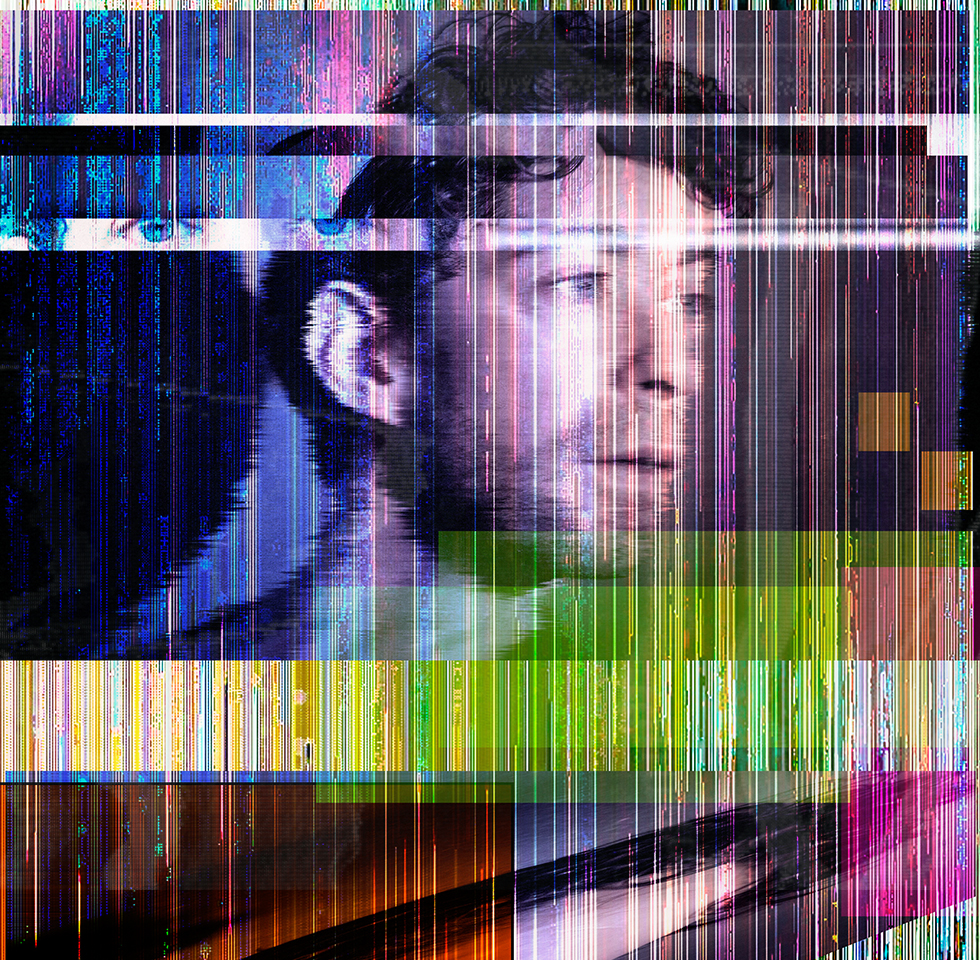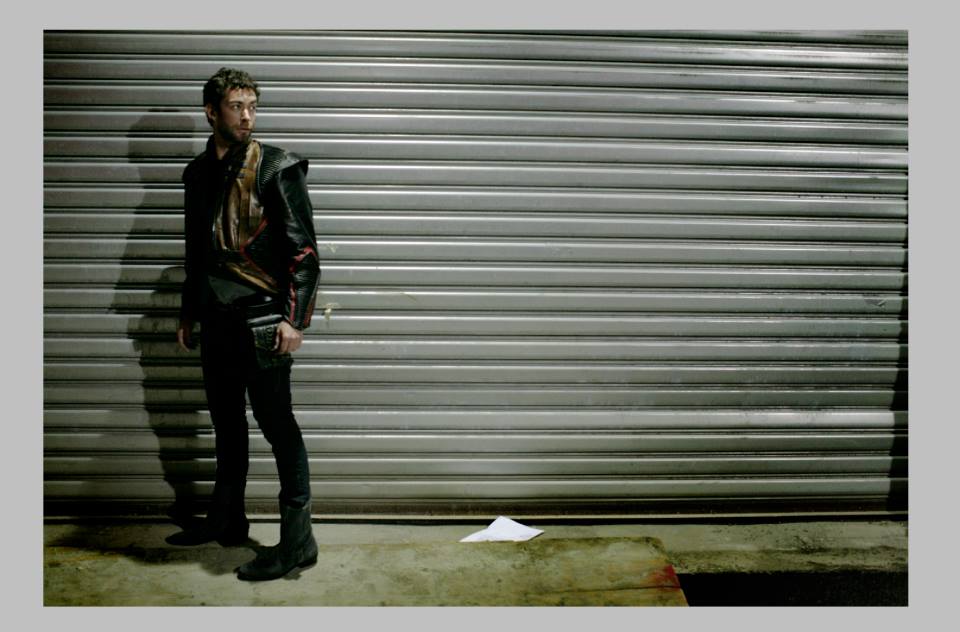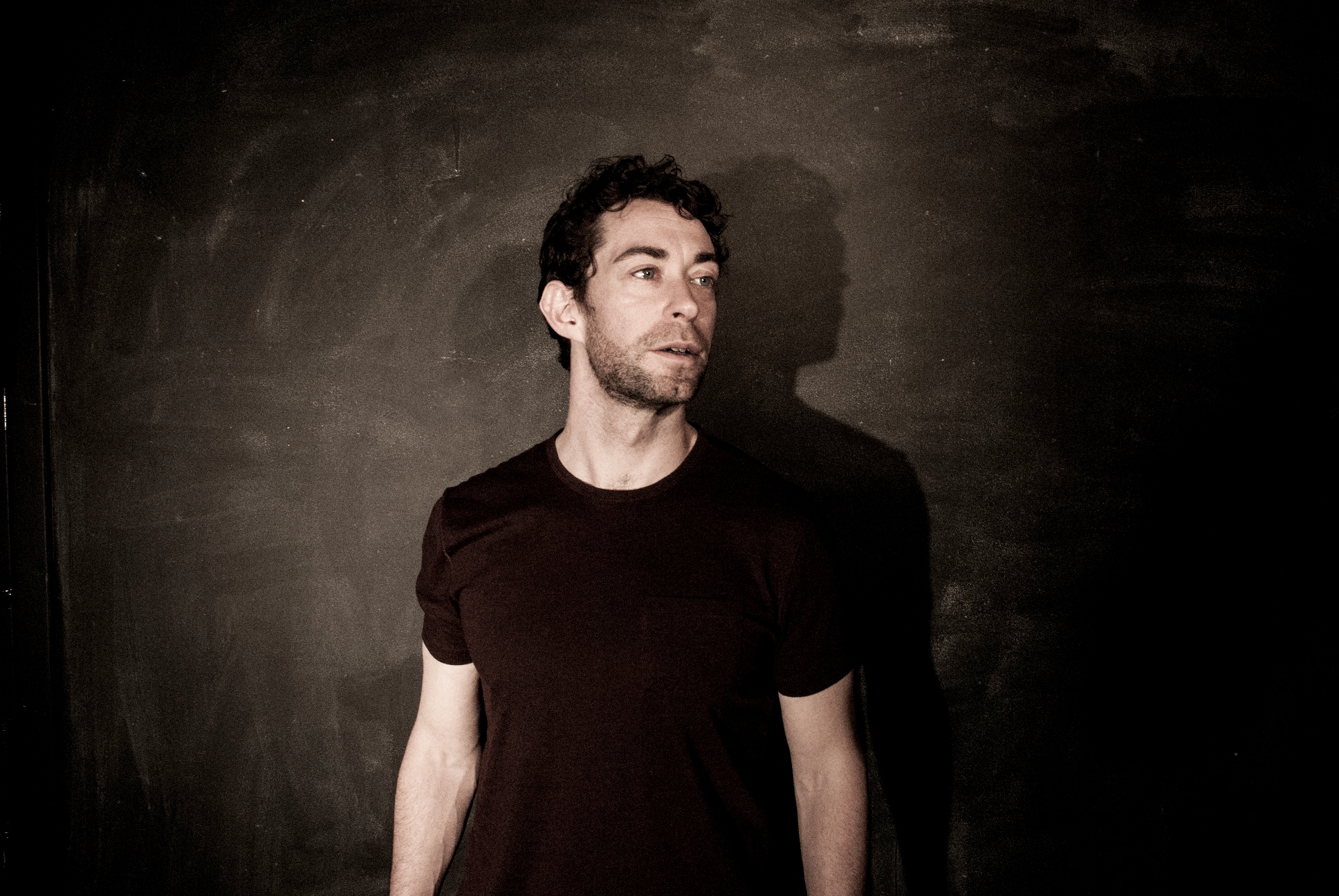


symbols Magazine: Why don’t you tell us a little bit about you?
Andre Mistier: All right. I started in New York City. I am half from New York and half from California. I went to Yale, and when I graduated I moved out to California and became a ski bum in Lake Tahoe. And sometime when I was out there I just kind of, I had always played music. But sometime out there I kind of had my own little epiphanal what not of finally actually getting it and having a voice and having something to say. And music went from AN activity to THE activity.
sM: Why did you want to become a musician?
AM: My mom has been a musician and I started playing when I was five. I kind of did the classical thing as a kid and predictably I always played, but if there wasn't something that I found a voice in, it was just something I kind of did on the side. Then about a couple months after I graduated my dad died. That was the beginning of a bunch of soul searching. That soul searching led me. Just responding and figuring out that I had some sort of voice and something to say. And the moment I first started to develop ideas from having something to say for the first time music was it. Since then, music has been how I translate my world in ways that other people can experience it.
sM: I read that you were inspired to create this project based on your experiences at Burning Man. Is that true?
AM: 100 percent true! Burning Man really changed my understanding of a lot of things. Part of it being kind of the visual scape of the world I'd been developing. Musically, I have been doing a kind of a mix of live and electronic stuff. I really had a problem figuring out how to do it live. What instruments did I want to use? What parts of the experience were going to be live, and what parts were going to be electronic.
Going to Burning Man kind of made me understand what I wanted. I wanted the music to flow more like a DJ set, so I started looking at the strokes of how electronic music builds up and breaks down, rather than how live music builds up and breaks down. I make it more of an electronic music experience.
sM: What was the overall experience like at Burning Man as far as like the lifestyle portion of it?
AM: I'm not sure how much is describable in a way. The experience there was very powerful for me. There was one thing… there's an understanding for myself that DJ music is as improvisational as live music is. When it's improvisational it's guided by the melody. It really changed a lot of my understanding. I was looking for things that were interesting, mixed live and electronic music was happening there. And I didn't really see that much of that. There's a lot of electronic music, and a little bit of live music. There wasn't much of a mix for those two. So building shows that I could do at Burning Man, was part of the whole concept of what I've built since then.
sM: Now at one point you were working on film scores and sound tracks. Now if you could have sound tracked any movie, which one film or scene would you track?
AM: Oh. Because of how much I actually like the sound track, maybe Blade Runner.
sM: That's a good one. Now relying on the fact that music is in every facet of our lives, tell me what is your favorite instrument and why?
AM: It’s always got to be the voice, because no matter what, the voice is direct communication from person to person. I've been really interested in the spectrum of modern sound. We live in the world in which we all communicate with similar voices and we hear birds chirping, and we recognize cellos and violins and what not. But we also have, the noises from your car and your cellphone noises and construction noises, and elevator noises. And whether you choose to deal with it or not, the secular sound that we live in is this very broad range from the very organic to the very Industrial. I've always been interested in trying to find ways to bridge those two things. I'm really interested in what I call like making hybrid sounds. Like taking the voice and kind of running it through 20 filers, cutting it up, putting in a bunch of other filters, using it as a percussion element, or a synthesizer or whatever. You get these kind of textures that sound electronic, but they feel a little bit more organic than a lot of electronic sounds do. When I isolate the sounds and play them for people they're like, “Oh yeah, I can hear that there's a voice in there somewhere. But I wouldn't necessarily hear that if you didn't isolate that.” I think part of that is because I'm a human not a robot. This whole thing is actually really hypertensive for me. I think what I'm trying to do with sound is what I'm trying to say about life and society, exploring the mix of the live and the human with the hypnotic and mechanical of the digital.
sM: Would you say that it's something that's spiritually based for you now?
AM: Yeah. Absolutely. I mean to me one of the things you get from the flawless rhythm of electronic music is that kind of matched hypnotic experience where people kind of lose themselves and become part of this, brief coral experience of more than just yourself.
sM: The collective high of EDM.
AM: Yes
sM: Do you ever find yourself afraid to sing certain songs, is it intimidating to share your soul with people that just may never get it? Or is just one person getting it enough for you?
AM: You know, I used to feel that way. I used to both be a little worried about it, and a little worried about people getting it, but the closer I am to doing things that are exactly what I believe and what I really think, that can kind of vanish. The music I'm making now I like better than any music I've ever made. And I like performing this stuff better than anything I've ever performed before. It just it makes me really really happy. And I would love for other people to feel that way too. I think if you spend too much time thinking about how they're going to respond, you're not going to spend enough time thinking about what you are trying to do in the first place.
sM: Do you dance?
AM: Oh yeah. I mean not dance like choreographed, but I dance on the stage. Definitely. I love it. And that's one of the central themes to me. This music is the most I've ever enjoyed dancing on stage, performatively by a long shot.
sM: So what are you looking forward to with this project? What do you see for yourself?
AM: This album is kind of a narrative structure that is developed into this future world. The album follows two main characters, and it's all the narratives of them. I'm more interested in creating the whole world of them, than just in creating their story, but I'll tell you the story too. The idea was instead of releasing an album, I'm releasing chapters. Like the way books used to be released, serially like. So every three months I'm releasing like three or four songs with a video. For the video, it's not going to be a straight narrative. I don't want it to be that literal. So it's not like if you put the four videos together it would look like a film and tell a story. It's not that straight. But nonetheless, they do tell pieces of the story. The plan is to release it the whole thing as a compilation of with a graphic novel that actually tells this whole story of the whole thing. In addition, I'm developing a website right now. It's a website that exists in the fictional world, not a website in our world about that world. So for example, the first single of the first chapter is called Maybelline. She's one of the main characters. I'm interested in the website having Maybelline's diary. These websites are going to treat that world as if it's completely real, and what I'm really trying to do is to make that world an open source, try to get as many people involved with it as possible.
sM: So it's like second life?
AM: Kind of, yeah I guess so. I don't have at my hand and disposal to make it into a video game.
sM: Of course, but the basic concept.
AM: It's definitely a small element of that in here.
sM: So what chapter are we in now?
AM: We leave chapter one. We've finished the music and the video for chapter two. I'm just trying to not get too far ahead of myself. I really would like to be kind of pushing myself, creating a leading ahead of time. I'm interested in the idea that this story can go in a lot of different directions. And I'm trying to just keep up, basically.
